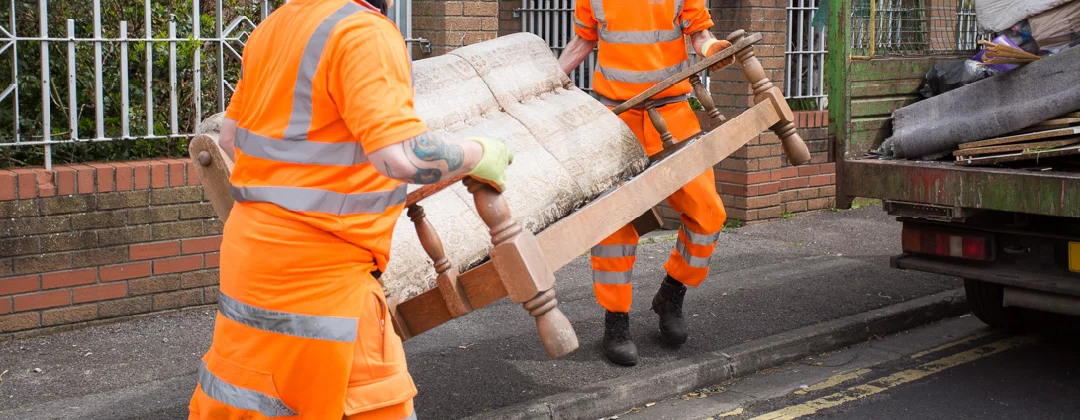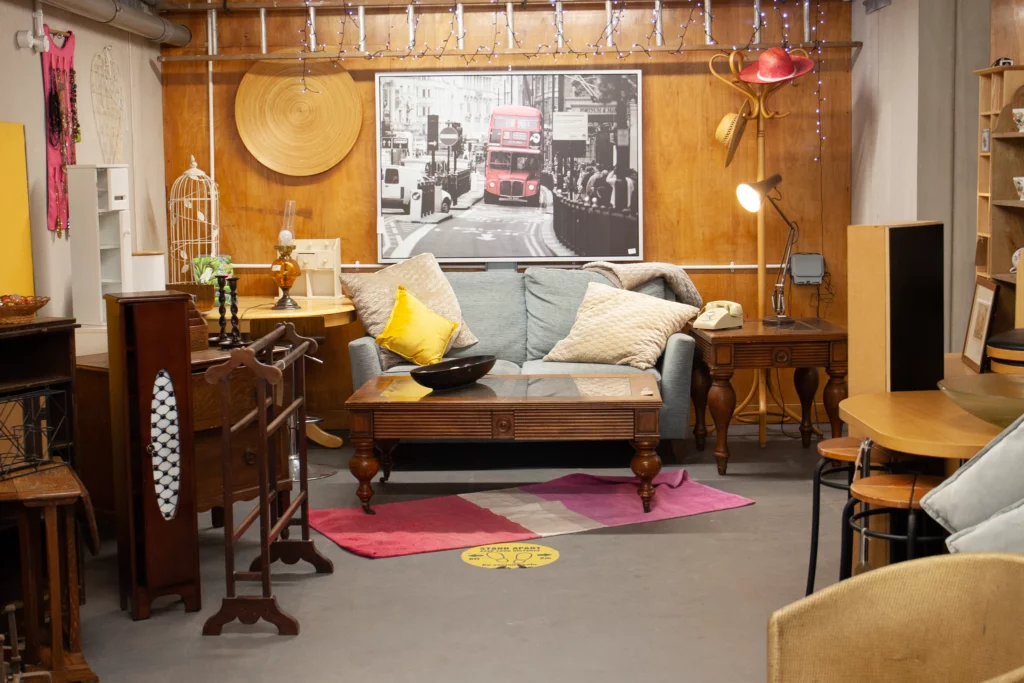How you dispose of upholstered furniture has changed

Regulations around Persistent Organic Compounds (POPs) have changed. From January 2023, the way upholstered furniture items are disposed of is changing too.
But first things first, let’s quickly explain what we mean when we say upholstered furniture and POPs.
What is upholstered furniture?
Any furniture with a soft or padded covering. This includes any seating or furniture items containing fabric, foam, padding, leather or synthetic leather elements.
Examples of upholstered furniture are things like sofas, armchairs, dining chairs with padded seats or office chairs.
![]()
What are POPs?
Persistent Organic Compounds are chemicals that remain in the environment for long periods of time without breaking down or changing. They can have a harmful impact on the environment, wildlife and human health.
POPs include chemicals that are used to fire-proof upholstered furniture. For the chemistry-heads among you, these are some of the POPs commonly found in domestic seating and upholstered furniture:
- Decabromodiphenyl Ether (DecaBDE) (the most common)
- Hexabromocyclododecane (HBCDD)
- Pentabromodiphenyl Ether (PentaBDE)
- Tetrabromodiphenyl Ether (TetraBDE)
How have the rules changed?
In order to manage the impact of POPs, the Environment Agency has changed the rules around how we dispose of upholstered furniture.
Waste upholstered domestic seating containing POPs cannot be:
- disposed of in landfill
- mixed with other non-POPs containing waste
- reused or recycled
Waste upholstered domestic seating containing POPs must now only be sent for incineration.
What does this mean for you?
To make sure we comply with the new rules whilst recycling as many items as possible, Bristol’s Household Reuse and Recycling Centres will now have a brand new material bay for “upholstered furniture” only.
This means that if you take unwanted furniture to a recycling centre, there will either be:
- one bay for bulky waste that does does not contain any upholstered elements and can be recycle and a different bay for upholstered items only, which will be sent for incineration.
Or:
- one bay for upholstered items and several bays for other types of bulky waste such as wood, white goods and rubble.
What else can I do?
You can also help to minimise the impact POPs have on the environment by reducing and reusing:
Reduce – By only buying new upholstered furniture when you really need it, you help to directly reduce the amount of POPs going into the waste stream. Gold star for you!
Reuse – If your unwanted furniture item is still in good condition and has a fire safety label, you can still donate it to our Reuse Shop and avoid the waste stream completely. Plus, if you’re looking for some new furniture, why not buy second hand? By cutting the amount of new furniture being produced you are directly contributing to a reduction in POPs.

